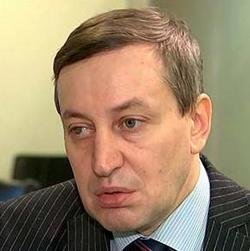Russia’s financial expectations: possible tightening sanctions, trade wars and stagnation of economy
What will happen to the ruble, dollar and oil in 2019?
Financial analysts don't expect global shocks in the stock market in 2019, but they don't exclude any risks for Russia. Trade wars between the USA and China are one of the major fears. Still, in experts' opinion, the global economic crisis is unlikely to repeat. Realnoe Vremya tells the details.
Growth in prices and stagnation in economy
Only two sectors showed positive dynamics in 2018: oil and gas and finance. ''Trade wars and the politics of sanctions and restrictions: the European Parliament opposed Nord Stream 2, the scandal around Siemens turbine supplies to Crimea. All these events aren't good news and restrict the development of separate sectors. We can't expect a global change of mood in geopolitics,'' noted director on Management and Regional Development at Solid IFC Aleksey Klochko. Moreover, the country already got used to living in conditions with restricted resources: ''Significant changes in the country's economy aren't expected till the end of 2019,'' he forecasts.
Considering the rise in VAT and, consequently, higher inflation and prices for food and services, the new year will be tough for the Russians and the economy's real sector.
 Deputy Director of Alpari's Analytic Department Natalia Milchakova presupposes that consumer price index in 2019 might exceed 5%, economic growth paces won't be high and won't cross 1,5% a year: ''Real income dynamics will be weak due to the weakening ruble, the rise in VAT and twofold growth of utility tariffs, we expect growth to be no more than 1%.''
Deputy Director of Alpari's Analytic Department Natalia Milchakova presupposes that consumer price index in 2019 might exceed 5%, economic growth paces won't be high and won't cross 1,5% a year: ''Real income dynamics will be weak due to the weakening ruble, the rise in VAT and twofold growth of utility tariffs, we expect growth to be no more than 1%.''
Adviser to Otkritie Broker's director general on macroeconomics Sergey Khestanov forecasts the basic development scenario of the Russian economy or, to be more precisely, low economic growth paces: ''If we use the market language. To put it simply, it's stagnation. The Russians who are 45-50 years-old saw all this when they were young.'' However, the expert asks not to be so dramatic, as not the stagnation itself but how much it will take frightens. ''This leads to accumulation of discontent in society, the social stability might suffer,'' Khestanov thinks and adds the basic scenario is possible only if there aren't ''external shocks''.
Sanctions and oil price
Deputy Director of Alpari's Analytic Department Natalia Milchakova agrees that sanctions against our country will stay, but the imposition of new, stricter ones is under question: ''If this scenario is applied in the end, sanctions will, first of all, lead to a weaker ruble rate, weaker dynamics of the stock market and bigger capital outflow from Russia.''
Khestanov doesn't rule out sanctions against Russia might tighten: ''It's funny but sanctions have put only moral pressure at the moment, as sanctions don't affect money flows of enterprises directly.'' In his opinion, westerns countries aren't ready for something radical now: ''Russian oil and gas are irreplaceable now. It seems to me than western politicians who aren't pragmatics, who, first of all, care about their citizens' well being won't permit strict sanctions.''
The experts carefully make forecasts for the ruble, euro, dollar rate and oil price. For instance, Alpari thinks oil price is unlikely to rise suddenly during the year, though they don't exclude this is possible in case of some force majeure or escalation of the situation in the Near East. The rates will likely to remain at $60-65 per barrel in the first half of the year, the company's experts think.
''It's quite uneasy to forecast oil prices in 2019, as some uncertainty about the total production output remains. But it's possible to define the highest bar of the pricing diapason. We think Brent crude won't be more expensive than $70 per barrel because shale oil production in the USA goes on growing confidently. The USA started to sell oil more than they purchase for the first time in 75 years,'' Solid IFC's analyst Vadim Kravchuk noted. The experts don't predict serious shocks for the ruble.
 Deputy Director of Alpari's Analytic Department Anna Kokoreva considers that the Central Bank will enter the domestic market in 2019 to purchase currency for the Ministry of Finance but keep the strict monetary policy. Movement in the national currency still depends mostly on geopolitics, which will likely remain uneasy in 2019, escalation isn't excluded. ''This means the situation for the ruble becomes more negative than positive. The Russian currency remains cheap in 2019, the average dollar rate will be 66 rubles, the euro rate is 76 rubles. Both ups and downs are possible during the year,'' Kokoreva forecasts.
Deputy Director of Alpari's Analytic Department Anna Kokoreva considers that the Central Bank will enter the domestic market in 2019 to purchase currency for the Ministry of Finance but keep the strict monetary policy. Movement in the national currency still depends mostly on geopolitics, which will likely remain uneasy in 2019, escalation isn't excluded. ''This means the situation for the ruble becomes more negative than positive. The Russian currency remains cheap in 2019, the average dollar rate will be 66 rubles, the euro rate is 76 rubles. Both ups and downs are possible during the year,'' Kokoreva forecasts.
Russians' loan burden will grow
Nobody waits for significant changes in Russia's banking sector. Solid IFC tells about low chances that the situation will change, the Central Bank tightens the regulatory pressure. Alpari's experts note that natural persons' demand for loans will keep growing in 2019, the population's loan burden will continue rising. At the same time, this doesn't mean that bank's loans will be in demand among Russians.
''The volume of lending to juridical persons by banks will also grow. However, we may not expect high growth paces of demand for loans in this segment if the Russian Central Bank raises the interest rate. The inflow of money to deposits to banks will increase after the interest rate augments. We can also expect the Bank of Russia to increase control over the banking sector, and the revocation of licences will go on, though, possibly not such a big number of banks will be affected by so strict measures of the Russian Central Bank,'' forecasts Deputy Director of Alpari's Analytic Department Natalia Milchakova.
To wait for world crisis?
Experts don't hide the world economy will gradually approach a crisis: ''I don't know what will happen in 2019, but the probability that a cyclical crisis might come out in 2020-2021 is high,'' Khestanov supposes.
 With such probability, any forecasts will be have to reconsidered for the worse. In Khestanov's opinion, the trade conflict between the USA and China and the analogous conflict between the USA and the European Union are the factors that might accelerate the world economic crisis: ''The situation with China is tougher. I am 90% sure they will come to an agreement. But if doesn't happen, everyone might have this crisis in the new year. The event has low chances, but we can't exclude it completely.''
With such probability, any forecasts will be have to reconsidered for the worse. In Khestanov's opinion, the trade conflict between the USA and China and the analogous conflict between the USA and the European Union are the factors that might accelerate the world economic crisis: ''The situation with China is tougher. I am 90% sure they will come to an agreement. But if doesn't happen, everyone might have this crisis in the new year. The event has low chances, but we can't exclude it completely.''
Chief analyst at Alpari Vadim Iosub adds the lasting fall in American shares to the mentioned risks, which caused it. In his opinion, all this can affect developing countries' debt markets and stock markets in the end.
''Despite the above-enumerated threats, we don't expect a global world crisis. Risk factors can bring to slower economic growth, but big developed economies unlikely might face a recession. There are risks, first of all, for countries with developing markets. But they can be quite fast like it was in August-September 2018 and neutralised by a rise in rates. A sure sign that there won't be any global crisis in the short term is that everyone is discussing its threat now. Really destructive crises come at the peak of general euphoria when nobody expects them,'' Iosub stressed.
Solid IFC notes that it's early to talk about a global crisis, but there is a series of dangerous prerequisites. In the company's analyst Vadim Kravchuk's opinion, first of all, a high debt level in the world serves as one of the factors. But we shouldn't forget about the trade debate between the USA and China.
How much will economies grow?
 Kravchuk notes that GDP growth paces of leading countries were reconsidered for the worse mainly due to the trade dispute between the USA and China: ''The economy of China can grow by 2,5% instead of the expected 2,7%. Russia's GDP will grow by 1,1-1,2% for external and domestic reasons, though higher indicators were expected earlier.
Kravchuk notes that GDP growth paces of leading countries were reconsidered for the worse mainly due to the trade dispute between the USA and China: ''The economy of China can grow by 2,5% instead of the expected 2,7%. Russia's GDP will grow by 1,1-1,2% for external and domestic reasons, though higher indicators were expected earlier.
Sergey Khestanov, in turn, adds that China's economy is gradually slowing down. From a perspective of macroeconomics, the Russian and Chinese problems are very similar: ''Both we and China have been developing thanks to export for almost 30 years. The difference is that we sold feedstock, while the Chinese almost sold their labour. It became clear in 2012 that this commodity model would run out soon, it wouldn't last forever.'' He forecasts the Chinese economy will grow by a bit less than 6,5% in 2019. The growth indicator in the USA will likely to be closer to 2%. Forecasted numbers for the Russian economy are by far lower.
''Optimists say about 1,5-1,8%, pessimists talk about even 0,5%. With the growth less than 2-3%, the difference in indicators doesn't matter, but it isn't felt in practice. For such a country as Russia, any growth lower than 3% with our real inflation means stagnation, in fact,'' Khestanov explained.
State projects affected GDP's growth in 2018 – the construction of the Crimean bridge, stadiums for the FIFA WC, improvement of airports: ''All this is expensive, but most businesses and citizens earn nothing from such growth of GDP,'' the expert concluded.